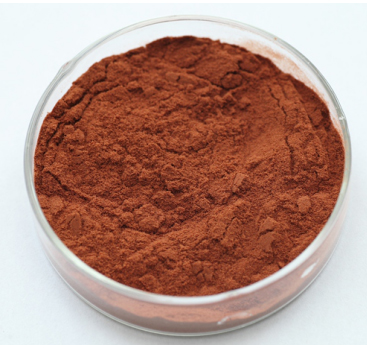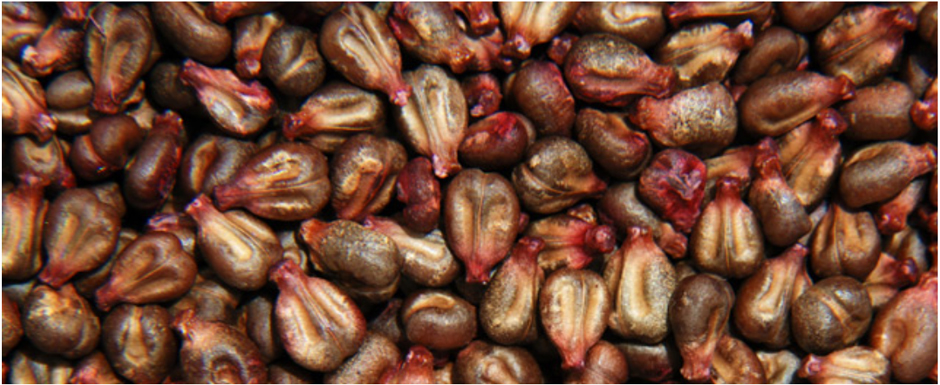2016 Good Quality Grape seed extract Korea
2016 Good Quality Grape seed extract Korea Detail:
[Latin Name] Vitis vinifera Linn
[Plant Source] Grape seed from Europe
[Specifications] 95%OPCs;45-90% polyphenols
[Appearance] Red brown powder
[Plant Part Used]: seed
[Particle size] 80 Mesh
[Loss on drying] ≤5.0%
[Heavy Metal] ≤10PPM
[Pesticide residue] EC396-2005, USP 34, EP 8.0, FDA
[Storage] Store in cool & dry area, keep away from the direct light and heat.
[Shelf life] 24 Months
[Package] Packed in paper-drums and two plastic-bags inside.
[Gerneral feature]
- Our product has passed the ID test by ChromaDex, Alkemist Lab. and other
third-party authoritative testing institutions, such as detection;
2. The pesticide residues match (EC) No 396/2005 USP34, EP8.0, FDA and other foreign pharmacopoeia standards and regulations;
3. The heavy metals in strict accordance with the foreign pharmacopoeia standard controls, such as USP34, EP8.0, FDA, etc.;
4. Our company set up a branch and import raw materials directly from Europe with strict control of heavy metal and pesticide residue. Aslo ensure the procyanidins content in grape seed is more than 8.0%.
5. OPCs over 95%, polyphenol over 70%, high activity, the oxidation resistance is strong, the ORAC more than 11000.
[Function]
Grapes (Vitis vinifera) have been heralded for their medicinal and nutritional value for thousands of years. Egyptians ate grapes a very long time back, and several ancient Greek philosophers spoke about the healing power of grapes — usually in the form of wine. European folk healers made an ointment from the sap of grapevines to treat skin and eye diseases. Grape leaves were used to stop bleeding, inflammation, and pain, such as the kind brought on by hemorrhoids. Unripe grapes were used to treat sore throats, and dried grapes (raisins) were used for constipation and thirst. Round, ripe, sweet grapes were used to treat a range of health problems including cancer, cholera, smallpox, nausea, eye infections, and skin, kidney, and liver diseases.
Grape seed extracts are industrial derivatives from whole grape seeds that have a great concentration of vitamin E, flavonoids, linoleic acid and phenolic OPCs. The typical commercial opportunity of extracting grape seed constituents has been for chemicals known as polyphenols having antioxidant activity in vitro.
Product detail pictures:

Related Product Guide:
Adhering into the basic principle of "quality, assistance, effectiveness and growth", we have attained trusts and praises from domestic and worldwide client for 2016 Good Quality Grape seed extract Korea , The product will supply to all over the world, such as: Morocco, Swaziland, French, we have 8 years experience of production and 5 years experience in trading with the customers all over the world. our clients mainly distributed in the North America, Africa and Eastern Europe. we can supply high quality products with the very competitive price.
https://SuccesswithTroyandDana.com
Sugar Blocker | F21 All Natural Sugar Blocker | Ludaxx Sugar Blocker Works!
F21 has been specifically formulated as an All Natural Sugar Blocker™ to help limit your blood sugar absorption. For every tablet of F21 you can block up to 10 grams of sugar (sucrose). Additionally, our patent pending formula not only helps promote weight loss, it benefits the digestive system by allowing the blocked sucrose to support beneficial probiotic bacteria while the polysaccharide (PSK) boosts your immune system response.
F21 Ingredients:
L-Arabinose, Coriolus Versicolor Polysacchride, Konjac-Mannan, Magnesium Stearate
Mint flavor: Menthol and Natural Colors.
Dr Rudi’s Story
“As a medical weight loss specialist, I am so excited to have access to products that supports what I have been telling my patients for years at a cost that is affordable. One of the biggest problems my clients face is convincing them to make changes in their lifestyle before they start seeing success, now with F21 and the other Ludaxx products, changes can begin to happen even before their lifestyle has changed.”
What is F21?
F21 is a delicious tasting tablet that is half the sweetness of sugar which helps block sugar absorption into the bloodstream as well as supporting beneficial probiotics within your digestive system! It is also an antioxidant that will boost your immune system response…
Cameron’s Story
“I decided to join Ludaxx after I started seeing my friends and family that were using F21 begin to experience better health including weight loss. Even though the need to lose weight is not an issue that I am facing, knowing that every gram of F21 can block up to twenty grams of Sucrose makes me feel less worried that weight will ever be an issue for me.”
F21 has been formulated to help limit your blood sugar absorption and control further weight gain. For every gram of L-Arabinose, F21 blocks up to 20 grams of sugar (sucrose) by inhibiting the enzyme called sucrase. Our digestive system will also receive the benefits of F21 to feed probiotic bacteria. With our powerful polysaccharides (PSK) to support the immune system response and protect against further free radical damage, we present you the product of the future. *
* These statements have not been evaluated by the Food and Drug Administration (FDA). This product is not intended to diagnose, prevent, mitigate, treat or cure disease.
Ingredients
L-Arabinose, Coriolus versicolor polysaccharide,
Other Ingredients
Konjac-Mannan, Magnesium Stearate
Help us share the power of the F21 with others…
Thanks, Troy & Dana
904-591-5413
https://successwithtroyanddana.com
SUGAR BLOCKER
BLOCK SUGAR
LUDAXX SUGAR BLOCKER
LUDAXX F21
SUGAR BLOCKERS
[diabetes]
[glucose]
[diabetic diet]
[type 2 diabetes]
[blood sugar levels]
[glucose levels]
[low blood sugar]
[what is diabetes]
[normal blood sugar levels]
[low blood sugar symptoms]
[blood sugar]
[blood glucose levels]
[high blood sugar]
[normal blood sugar]
[blood sugar levels chart]
[symptoms of low blood sugar]
[high blood sugar symptoms]
[normal glucose levels]
[fasting blood sugar]
[blood sugar chart]
[symptoms of high blood sugar]
[blood glucose]
[normal blood glucose levels]
[how to lower blood sugar]
This video shows you how to pronounce Hypericin
Production management mechanism is completed, quality is guaranteed, high credibility and service let the cooperation is easy, perfect!







